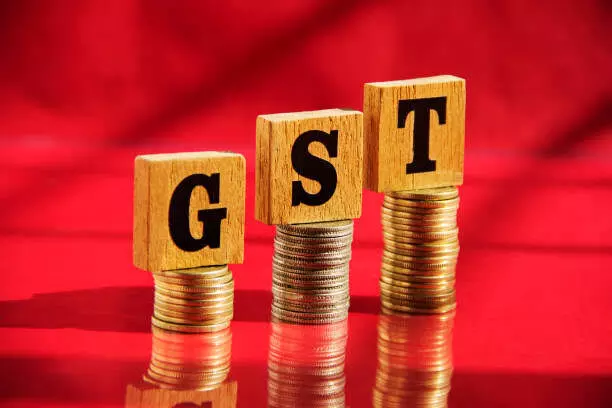PM Modi says GST rates will be cut by Diwali; drastic reforms on the anvil

New Delhi: Prime Minister Narendra Modi announced on Friday that the GST rates will be lowered by Diwali, bringing down prices of everyday use items, as his government looks to reform the eight-year old regime that has been plagued by litigations and evasions. Soon after the prime minister's announcement from the ramparts of the Red Fort on the 79th Independence Day, the Union Finance Ministry said it has proposed that most goods and services be taxed in two slabs - standard and merit - and select few items be charged special rates. This is to replace the current goods and services tax (GST) structure where sale of goods and rendering of services are taxed in four different brackets - 5, 12, 18 and 28 per cent with luxury and sin goods attracting a levy on top of the highest rate of 28 per cent. "This Diwali, I am going to make it a double Diwali for you," Modi said in his address to the nation. Stating that over the past eight years, his government has undertaken major GST reforms, the prime minister said, "We have discussed with states and we are bringing next-generation GST reforms that will reduce the tax burden across the country." "Tax on items of common man will be reduced substantially. Our MSMEs will benefit hugely. Daily use items will become cheaper, which will also strengthen our economy," he said.
GST, which subsumed a host of taxes and local levies, was rolled out on July 1, 2017. Without giving details, Modi said the next generation reforms being planned for GST "will be a Diwali gift for citizens". Soon after the prime minister's address, the Union Finance Ministry unveiled the Centre's blueprint of GST reforms that will be built on three pillars of structural reforms, rate rationalisation and ease of living. The eight-year old regime, which merged central taxes like excise duty and state levies like VAT into one tax, has led to indirect tax base doubling to 1.52 crore but tax rate cuts and the pandemic slowdown have meant net revenue collected has only recently converged to pre-GST level. It has also seen alleged evasion cases and litigation swell. To address this, the finance ministry has in a proposal to a group of ministers from states and Centre, constituted by the all powerful GST Council, called for "reduction of taxes on common man items and aspirational goods" to enhance affordability, boost consumption, and make essential and aspirational goods more accessible to a wider population. Significantly, it proposed moving to a "simple tax with two slabs - standard and merit. Special rates only for a select few items". Compensation cess which was levied on luxury and sin goods to make up for the shortfall in tax revenues that states may face because of GST regime, has ended, creating fiscal space and "providing greater flexibility to rationalise and align tax rates within the GST framework for long-term sustainability", the ministry said without giving details. On structural reforms, it said the inverted duty structure needs to be corrected to "align input and output tax rates so that there is a reduction in the accumulation of input tax credit". This would support domestic value addition. Also, classification issues need to be resolved to streamline rate structures, minimise disputes, simplify compliance processes, and ensure greater equity and consistency across sectors. The reforms need to provide for stability and predictability, providing long-term clarity on rates and policy direction to build industry confidence and support better business planning, it said. To make compliance easier, the ministry has proposed seamless, technology-driven, and time-bound registration, especially for small businesses and startups as well as implementation of pre-filled return filing to reduce manual intervention and eliminating mismatches. Also, faster and automated processing of refunds is needed for exporters and those with inverted duty structure. "The Centre's proposal, anchored on the above three foundational pillars, has been shared with the GoM for further deliberations within the GoM. The Centre has taken this initiative with the aim of building a constructive, inclusive, and consensus-based dialogue among all stakeholders," the ministry said. "In the true spirit of cooperative federalism, the Centre remains committed to working closely with the states. It will be building a broad-based consensus with the states in the coming weeks, to implement the next generation of reforms as envisioned by the prime minister," it said. The GST Council, when it meets next, will deliberate on the recommendations of GoM, and every effort will be made to facilitate early implementation so that the intended benefits are substantially realised within the current financial year. "The government reaffirms its commitment to evolving the GST into a simple, stable, and transparent tax system - one that supports inclusive growth, strengthens formal economy and enhances ease of doing business across the country," the finance ministry added.



